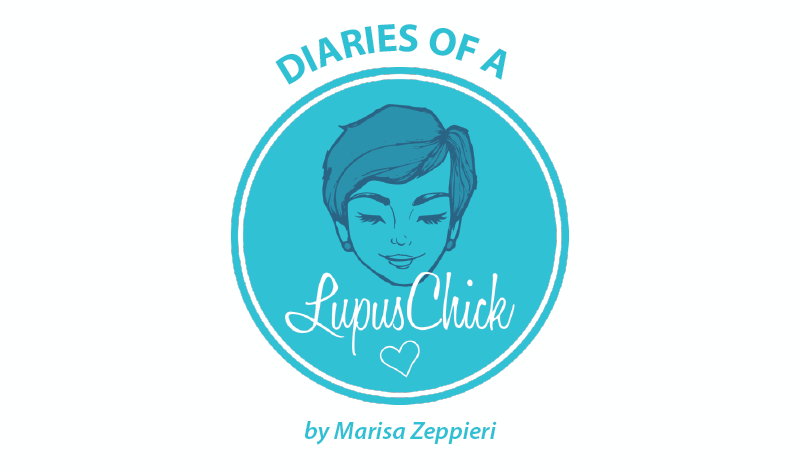The Psychological Impact of Lupus
Written by |

 Do you have someone in your life who doesn’t understand why you are always “sick and tired?” Is it hard for them to fathom that the illness you have won’t go away after a good nap or latest diet fad? And are they confused as to why you may feel sad or depressed? Over the years, I’ve realized that fully grasping the concept of chronic illness is difficult for some people. I understand, as I was once unfamiliar with chronic illness myself.
Do you have someone in your life who doesn’t understand why you are always “sick and tired?” Is it hard for them to fathom that the illness you have won’t go away after a good nap or latest diet fad? And are they confused as to why you may feel sad or depressed? Over the years, I’ve realized that fully grasping the concept of chronic illness is difficult for some people. I understand, as I was once unfamiliar with chronic illness myself.
What happens when we are confronted with someone who doesn’t grasp the severity or longevity of our illness, let alone the psychological impact? For starters, let’s look at the numbers of people potentially dealing with a similar situation. The CDC estimates that approximately 117 million U.S. adults have one or more chronic health conditions. That is a lot of people!
So, the next time someone looks bewildered when you mention chronic illness, you might want to kindly and patiently explain the following:
• Acute illnesses come on quickly and have a short duration – anywhere from a few days to a few weeks. This could be a cold, UTI, flu or perhaps a broken bone.
• Chronic illnesses (usually) come on gradually and are long-lasting or expected to last longer than three months. Cue lupus, rheumatoid arthritis, MS, fibromyagia, and many more chronic conditions.
And while these are the basic definitions that seem simple enough to understand, it’s really the psychology behind the two that makes all the difference.
Our body desires a resolution – every cell and organ system works in conjunction with our brain to bring homeostasis to the body. With short-term illnesses, we know there will be a speedy recovery. Let’s say a healthy person gets a nasty flu. Friends and family might drop off care packages, hot soup, and get-well cards.
While this person may feel awful, he or she feels secure knowing there are people out there who care and the virus will clear up soon. The impact on life is minimal and when the illness is over, life returns to normal.
Now let’s take a look at someone with lupus. I’ll use myself as an example. Years continue to go by where I am in and out of the hospital, in weekly IV treatments, on constant medications. I also continue to have on and off periods of flares where I can’t work, socialize, or, in some seasons, take care of myself. The psychology is completely different in this situation.
There is no resolution.
Because of this, chronic illness can weigh on the mind. It is a constant battle of asking ourselves whether we will be able to get up and feed ourselves, shower, go to work, take care of the kids, etc.
Then there is the financial aspect. Many of us want to work full-time, but our body can’t keep up. We are often on a limited budget, adding more psychological stress regarding what could happen if a financial emergency occurs.
On top of this, we deal with the physical stress our body is under on a nonstop basis. Pain, fevers, and inflammation take a toll on the body over time and we often feel helpless in controlling it all.
With all of these things working simultaneously, it isn’t uncommon for someone with chronic illness to feel frustrated, fearful, hopeless, angry, and in some cases, depressed. And for many of us, we suffer through these feelings in silence because others have deemed us weak or whiny.
The psychological impacts of a chronic illness can be vast. Yet, in my opinion, these impacts are not discussed as much as they should be. Oftentimes, a person diagnosed with chronic illness must go through a grieving process to move to the acceptance stage, eventually adapting to the illness and developing coping strategies. (You can learn more about this from the grieving process steps designed by Elisabeth Kubler-Ross).
If you are dealing with the negative psychological impact of a chronic illness, here are a few tips that may help:
- Build a strong circle of supportive friends/family that want to help. (Remember quality over quantity!)
- Find things that bring you joy whether it’s a hobby, reading inspirational books, praying, exercising …
- Educate yourself as much as possible about the illness to help dispel anxiety.
- Stick to a routine and accomplish a task each day, even if it is something small.
- Consider a support group – in person or online – where you can truthfully express your feelings, fears, and hopes to others in the same situation.
- Don’t discount individual counseling to learn coping strategies and express your feelings. Many psychologists work with patients on a sliding scale if they have low incomes or are on disability income.
How do you manage the psychological impact of chronic illness? I would love to read about your experiences in the comments below!
***
Note: Lupus News Today is strictly a news and information website about the disease. It does not provide medical advice, diagnosis, or treatment. This content is not intended to be a substitute for professional medical advice, diagnosis, or treatment. Always seek the advice of your physician or other qualified health provider with any questions you may have regarding a medical condition. Never disregard professional medical advice or delay in seeking it because of something you have read on this website. The opinions expressed in this column are not those of Lupus News Today or its parent company, Bionews Services, and are intended to spark discussion about issues pertaining to lupus.





Estella
I was diagnosed with Lupus in the mid 80's. My kidneys failed due to Lupus. I've had 2 kidney transplants thus far. I fight this dreaded disease with all I have. I wrote and performed in a short play about Lupus a few years ago to bring awareness about the disease to the community. I have Lupus but Lupus does not have me is what I live by. It's a struggle day by day. I take my meds and have regular checkups. I'm okay. I refuse to give in.
Brandi Dunn
I was diagnosed in 2010 after years of being sick and no one being able to give me any answers. It was a relief I had a name to the thing that had been causing me so much illness and I thought now finally my family and friends would no longer think I was just on drugs and lying about the whole thing. I just knew I would have them all back in my life to be there when I needed and they would understand it was not my fault and we could learn about Lupus and research it and put the nightmare behind me. Well this was the farthest from what has happened. Fast forward to now 7 years later and everyone I once loved and all I cherished are finally all gone. I lost more and more people in my life as the disease has progressed until there were two people left and now they are gone. I have had more and more psych issues requiring medication to deal with the anxiety and depression eventually I was unable to sleep needing meds but I refused to quit fighting it wanting so bad to never lose my son and husband as they were all I had left but getting more I'll over time and eventually not being able to work then not able to function at home as a mom or wife and it kept putting more and more on my husband and I steadily fell more depressed and more anxious trying different meds and therapies and turning to church and my faith to keep my spirits up and now I am defeated the blow up that was the end of it was brutal and the worst thing anyone could have had to go thru. I was called names that no subhuman should be called as well as just how worthless I was and had been and how physically I'll I made him and how much hate everyone had for me and the things said behind my back, it was yelled at me louder than I have ever heard in front of my son who cried. It destroyed me and hope he never talks to any women like I was talked to much less his wife and mother of his kids. I can't pull out of this and the energy to even try to is gone as well as reasons to. This disease is gonna kill me and that was never a secret but it took my whole world from me all I had worked for and loved my whole life. Dealing with an illness on this level alone is not humanly possible and no one should have to. Dealing with things like chemo and how it leaves me should have been something my family was understanding about but it wasn't. It is critical to get thru life to have family and friends for support and to help when needed and when it includes a chronic disease without that support will make it progress faster I have no doubt. People loved and happy are going to be able to deal with things easier and live longer it is just part of being human.
Annaliese
I see a therapist, take antidepressants, and allow myself to feel whatever emotions I’m experiencing from day to day without self-judgement. I also surround myself with incredible, loving, understanding and loving people. Their support is everything. Almost every day is a struggle.